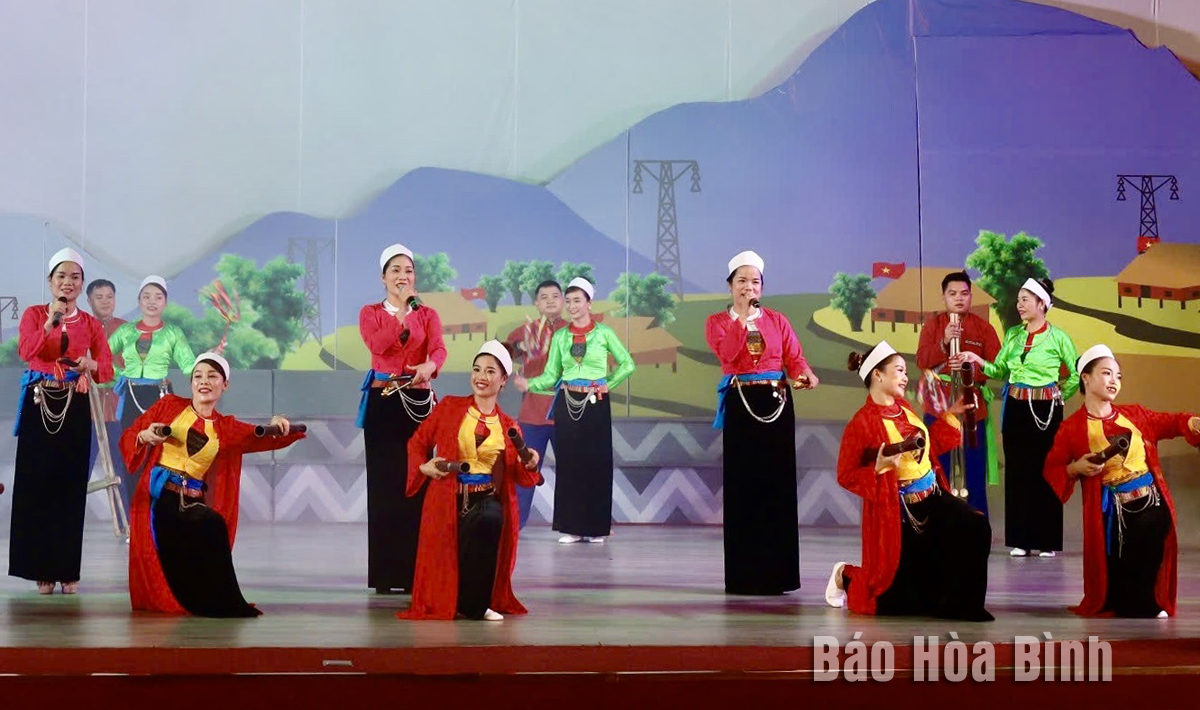
The Provincial People's Committee Office issued the Official Document No. 9958/VPUBND-NVK on October 15th, 2024, regarding the adjustment of certain contents in the plan for organizing the Week of the 2024 Culture - Tourism of Hoa Binh province.

During the
opening night of the Culture-Tourism Week, a special art program themed "The
Muong Land in Celebration” will take place.
Accordingly, the schedule for the
Culture-Tourism Week has been postponed from the end of October to
mid-November. After the adjustment, the Culture-Tourism Week is expected to
officially open at 7:30 PM on November 16 at the stage of Hoa Binh Square (Hoa
Binh City).
Aside from the change in the event's
timing, the other activities within the framework of the Culture-Tourism Week
will continue as planned under Plan No. 185/KH-UBND, dated September 4, 2024,
by the Provincial People's Committee, with many notable activities such as the
ceremony to receive the national special monument certificates for Xom Trai
Cave and Mai Da - Vanh village; a photo exhibition; an ethnic costume
performance festival of Hoa Binh province; a tourism guide competition; a
traditional Can wine festival night…
The Culture-Tourism Week aims to promote
and introduce the potential, strengths, beautiful natural landscapes, cultural
identities of the ethnic groups, the national special archaeological monuments,
Xom Trai Cave and Mai Da - Vanh village, and the province's distinctive and
attractive tourist destinations.
With an increasingly vibrant and widespread emulation movement aimed at building cultured residential areas and cultured families, Yen Thuy District has been making steady progress toward improving both the material and spiritual well-being of its people, while fostering a civilized, prosperous, beautiful, and progressive community.
Once lacking recreational spaces and community facilities, Residential Group 2 in Quynh Lam Ward (Hoa Binh City) has recently received attention for the construction of a new, spacious, and fully equipped cultural house. The project followed the model of state support combined with public contributions in both labor and funding.
The "All people unite to build cultural life" movement, which has been effectively integrated with Kim Boi district’s socio-economic development goals, is fostering a lively spirit of emulation across local residential areas, hamlets, villages, public agencies, and enterprises. In addition, through the initiative, traditional cultural values are being preserved and promoted, while community solidarity and mutual support in poverty reduction and economic development are being strengthened.
A working delegation of the Hoa Binh provincial People’s Committee led by its Permanent Vice Chairman Nguyen Van Toan on June 11 inspected the progress of a project to build the Mo Muong Cultural Heritage Conservation Space linked to tourism services in Hop Phong commune, Cao Phong district.
Born and growing in the heroic land of Muong Dong, Dinh Thi Kieu Dung, a resident in Bo town of Kim Boi district, in her childhood was nurtured by the sweet lullabies of her grandmother and mother. These melodies deeply imprinted on her soul, becoming an inseparable part of her love for her ethnic group's culture. For over 20 years, this love for her hometown has driven Dung to research, collect, and pass down the cultural values of the Muong people to future generations.
In the final days of May, the Ethnic Art Troupe of Hoa Binh Province organized performances to serve the people in remote, mountainous, and particularly disadvantaged areas within the province. These were not just ordinary artistic shows, but they were the meaningful journeys aimed at spreading cultural values, enhancing the spiritual life of the people and contributing to the preservation of ethnic minority cultural identities.



